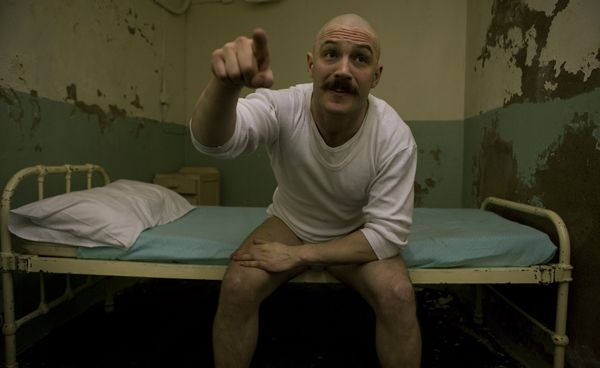A rough year, you say? Maybe for your 401(k). Hollywood raked it in, enjoying record box office numbers, while the indie and foreign lineup (though spread between fewer companies perhaps) yielded an unprecedented number of treasures. To be honest, I can't remember the last time I had such a hard time cutting my best-of list off at 10. Surveying my choices, I'm hard-pressed to find a common theme. In fact, if I didn't know better, I might even wonder what kind of critic can love a G-rated Japanese-animated cartoon and Lars von Trier's genital-mutilation opus in the same breath, or reconcile the esoteric with the popcorn populism of James Cameron's Avatar. But there you have it. Of the 274 first-run and festival films I saw last year (that's as many movies as qualified for Oscar consideration in 2009 - though not the same ones), the 10 best are listed after the jump:
1. In the Loop
This mockumentary-style political satire from
British comedy savant Armando Iannucci brings the fast-talking BBC Four series "The Thick of It" inside the Beltway, as bellicose "don't ever call me fucking English" party enforcer Malcolm Tucker (Peter Capaldi, playing the full-body equivalent of a throbbing neck vein) preys on the ego and incompetence of his fellow lawmakers to spin both nations into declaring war on an unnamed country. Applying the unfussy fly-on-the-wall approach of The Office to a screenplay that would've made Paddy Chayefsky proud, Iannucci intends merely to update Yes Minister for the Iraq era, but in the way that only comedy can, manages to tap into something deeper. As profound as it is profane, the whirlwind of witty barbs and bureaucratic nonsense demands to be seen twice as it poses the terrifying question, What if the principles of showbiz (where nobody knows anything) governed government?
2. The Sun
Consistent with the notion that villains make more interesting characters than heroes, The Sun marks the third installment in director Aleksandr Sokurov's series on 20th-century dictators. Where Moloch profiled Hitler and Taurus featured Lenin, this intimate character study examines Hirohito at the time of Japan's surrender in World War II. Slow moving yet philosophically rich, the film opens to find the fallen leader under house arrest and facing a dilemma unique in human history: Should the emperor, whose followers regarded him as a god among men, renounce his divinity to the people and in so doing let down the sacrifices they've made on his behalf? Sokurov draws us in to the mind of this enigmatic figure, while Issei Ogata (in one of the oddest performances the medium has ever seen), paints Hirohito as a sheltered yet intellectually curious individual, already struggling to reconcile scientific reasoning with centuries of tradition.
3. Avatar
Originality is overrated. For many critics, it's the
thing that matters most, and small wonder given the sheer number of films they see a year. But for audiences, novelty (at the narrative level, at least) isn't necessarily what we seek when going to the movies. There's a reason certain stories endure - just ask Joseph Campbell. Or Shakespeare, for that matter. The Bard didn't invent the plots of his plays, but he did manage to advance them through verse. James Cameron does so by creating Pandora. But it's not just the photo-real effects that excite me about Avatar; Cameron's archetypal plot follows the stages of the monomythic "hero's journey" beat for beat to illustrate the still-revolutionary notion that empathy (specifically, seeing the world through the eyes of the Other) is key to cohabitation among cultures - and nature as well. In essence, Cameron has made a $300-million hippie movie, where aliens fear humans, not the other way around.
4. Summer Hours
A return to form for gifted French director Olivier Assayas, Summer Hours hails from the same Musée d'Orsay-sponsored series that produced last year's Flight of the Red Balloon. Designed to celebrate the role of art in 21st-century life, this quiet, classical film finds three grown (and potentially ungrateful) children pulled away from their busy lives to decide how they should handle the family estate - not just the idyllic summer home where they spent their childhoods, but also the numerous objets d'art amassed by their late uncle. Though the film has a none-too-subtle agenda (implying that a museum would be a better steward of these treasures than the distracted heirs), it coincided with my own decision to redirect my nest egg into buying several original paintings. Especially resonant was the idea that one's legacy may have as much to do with what you collect as it does the things that you create.
5. The Cove
Why should audiences care about dolphins? Turns out, we already do, and The Cove makes an excellent case for the special bond between humans and these incredibly intelligent mammals, weaving the impassioned testimony of iconic dolphin trainer Richard O'Barry (of "Flipper" fame) throughout. But The Cove is no mere talking-head documentary. Yes, it aims to educate us about the sinister side of marine parks and the highly toxic dolphin meat market, but director Louie Psihoyos (co-founder of the Oceanic Preservation Society) has more ambitious intentions, assembling a special team to infiltrate the private site and expose the cruel process of dolphin captivity and slaughter that occurs each year in Taiji, Japan. The result is a tense operation as exciting as any spy movie, with the film expertly calibrated to reflect the nerve-racking real-life mission and its prize: devastating footage captured in the cove itself.
6. Two Lovers
If Joaquin Phoenix is serious about quitting the business, he couldn't have picked a better project to go out with. Reteaming with director James Gray for the third time, the actor lays bare the soul of a troubled romantic torn between settling for the "right girl" (a fetching family friend, played by Vinessa Shaw, with the maternal instincts to handle his depressive tendencies) and chasing after the wrong one (Gwyneth Paltrow, delivering her most nuanced performance yet as a woman whose allure rests in her very unattainability). Less ambitious in scope than The Yards or We Own the Night, Gray's latest is free to burrow into the psyche of these self-destructive characters, exploring the dark side of a premise that might easily have sustained a romantic comedy. It's startling to see obsession treated so candidly (as in one particularly grueling rooftop encounter), and yet I'll take this film's insights over others' escapism any day.
7. Antichrist
The thing about Dogma 95's "Vow of Chastity" and the films that grungy aesthetic inspired is how easily we forget the expert way Danish director Lars von Trier worked within the polished, classic Hollywood style before swearing off those conventions to make Breaking the Waves, Dancer in the Dark and Dogville. Perhaps the greatest shock of Antichrist, then, is how masterfully it manipulates the old-school tools of cinema, toying with us through sound, music and ever-so-subtle tweaks to Anthony Dod Mantle's cinematography even as it steers the content into extreme new territory. Much can be said about the director's intent, politics or psychology - in that respect, Antichrist is rich enough for you to burrow as deep as you please. I'm more enraptured by the way it made me feel, using the tropes of so-called "torture porn" to create a roiling emotional journey about a couple coming to grips with tragedy.
8. Ponyo
What I love most about Hayao Miyazaki is just how intuitively audiences of any age and culture can follow his surrealistic imagination. Many have called Ponyo his "most Japanese" film yet, but I challenge anyone not to fall under the spell of its Little Mermaid-like story, in which a young boy rescues a magical goldfish in a tide pool near his home, inspiring the young underwater princess to transform into his sunny young playmate. I don't throw the word "masterpiece" around casually, but Miyazaki's wonderfully impressionistic tale stands as a culmination of all that has come before in his career, encompassing ecological themes (the threats of pollution and overfishing), an acute sense of modern family (the dynamic between Toshi's working mom and faraway father perfectly captures contemporary domestic challenges) and his unrivaled capacity to see the world through childlike eyes (was any 2009 scene more enchanting than Toshi's toy boat ride?) - rendered all the more remarkable in that every frame is drawn by hand.
9. District 9
Not unlike Avatar, here is another alien invasion story that promotes understanding the Other through the process of becoming one of them, only this time, instead of it being a cripple who finds his higher purpose defending a bunch of blue-skinned Na'vi (and who wouldn't prefer these E.T.s' hyper-sexualized looks and tree-hugging ways?), District 9 goes the monster-movie route, with its milquetoast hero tearing off his fingernails and slowly, painfully transforming into a 10-foot cockroach-looking creature. I don't quite buy the South African film's apartheid allegory, which serves to dress up an otherwise routine Robocop-style noble-loner-vs.-Daddy-Warbucks action plot, but director Neill Blomkamp is innovative enough with his pseudo-documentary approach that the format alone was enough to win me over. Basically, Blomkamp (and producer Peter Jackson) use our media-saturated sensibilities to sell the moment-to-moment "reality" of their far-fetched story, embracing the grab-and-go style directors like Paul Greengrass have brought to the 21st-century blockbuster and evolving it to the next level.
10. Sugar
A Dominican baseball trainee can all but taste the American Dream in this poignant tribute to our nation's favorite pastime. A more accessible, yet no less independent portrait than directors Anna Boden and Ryan Fleck's Half Nelson, Sugar tells the story of a talented young pitcher who's trained his entire life for a shot at the Major Leagues, then balks just shy of the big time. The movie simmers with the energy of the game, but is ultimately about what becomes of all those starstruck immigrants once they leave the field. This kid's dream isn't what we expect, but baseball gets him there all the same. Perhaps its reductive of me to lump Sugar in with two other terrific race-related indies, but I also loved Goodbye Solo (about a Senegalese cab driver who befriends an older white man he believes to be suicidal) and Medicine for Melancholy (a Before Sunrise-style running conversation between two African-American hipsters).
Honorable Mention: Bronson
Last year at Sundance, everyone was talking about this midnight movie in which some naked guy spends the entire movie pummeling people in prison. The whole thing sounded pretty unpleasant, so I back-burnered the movie for five months. What I didn't realize (although those original rumblings clearly conveyed as much) is what an incredible character this virtual one-man show provides for actor Tom Hardy, who's been called the Next Big Thing, but before never really followed through on that promise. Until now. Here, he delivers a performance on par with Daniel Day-Lewis in There Will Be Blood in what proves to be an audacious movie to boot. In a novel twist, Nicolas Winding Refn interprets the tabloid-seeking antics of notorious British con Michael Peterson (aka Charlie Bronson) as a form of performance art. Where other prison movies focus on jokers trying to break out, Bronson tells the story of a man crazy enough to want in.


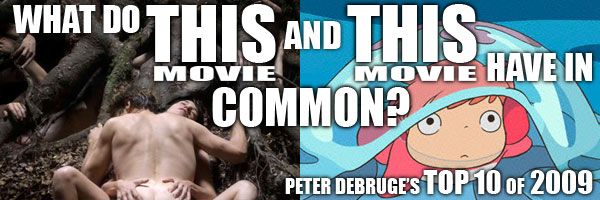
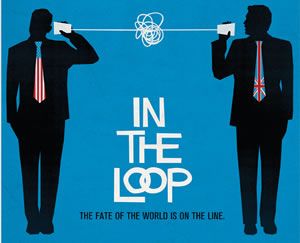
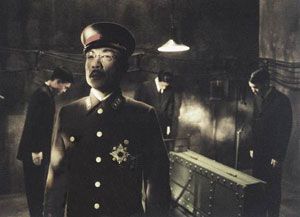
.jpg)
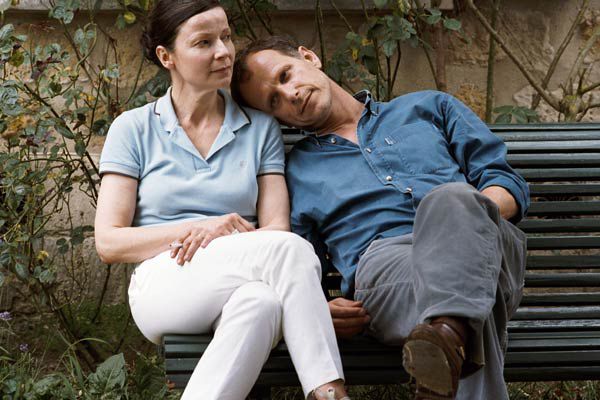
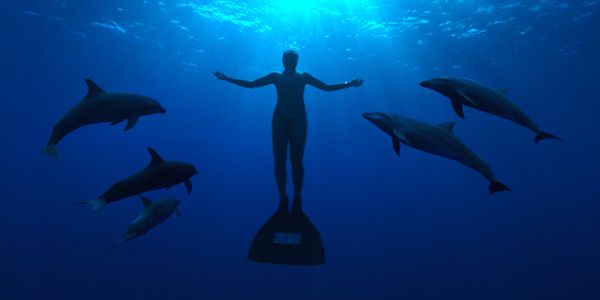
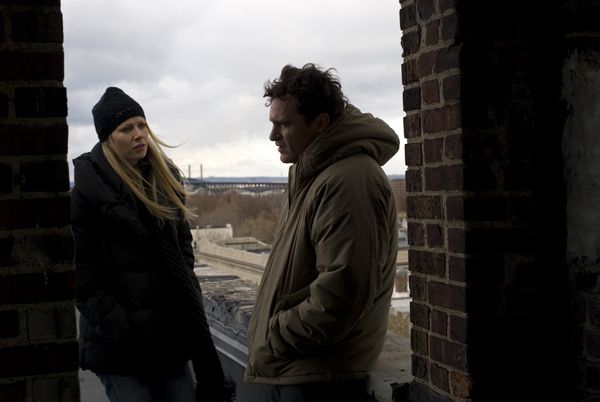
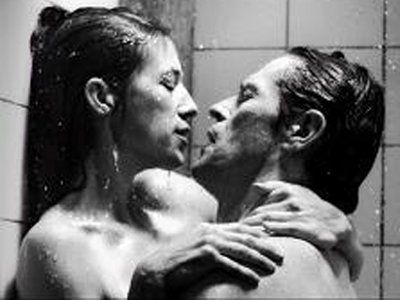
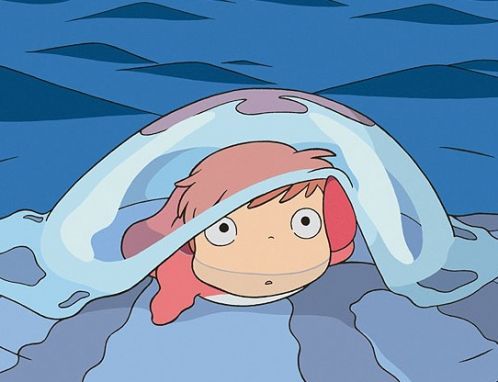
.jpg)

